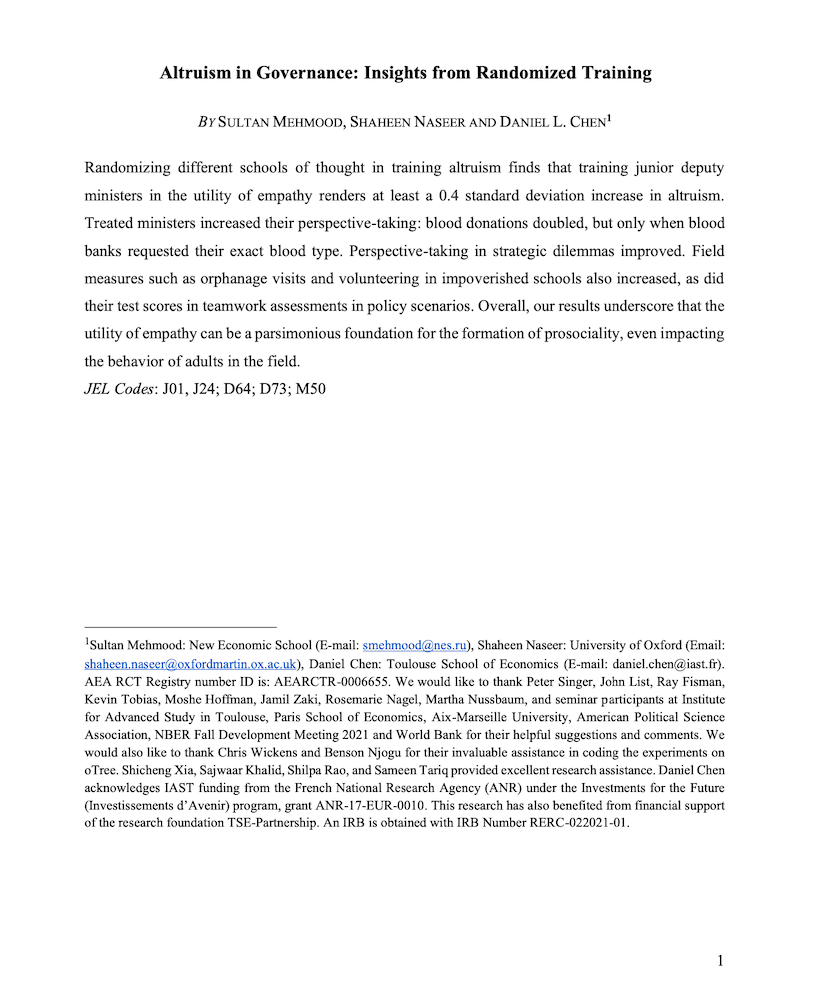Altruism in governance: Insight from randomized training
Sultan Mehmood (New Economic School), Shaheen Naseer (Lahore School of Economics) and Daniel L. Chen (Toulouse School of Economics)
GPI Working Paper No. 7 - 2022, published in the Toulouse School of Economics Working Paper series and in the Journal of Development Economics
Randomizing different schools of thought in training altruism finds that training junior deputy ministers in the utility of empathy renders at least a 0.4 standard deviation increase in altruism. Treated ministers increased their perspective-taking: blood donations doubled, but only when blood banks requested their exact blood type. Perspective-taking in strategic dilemmas improved. Field measures such as orphanage visits and volunteering in impoverished schools also increased, as did their test scores in teamwork assessments in policy scenarios. Overall, our results underscore that the utility of empathy can be a parsimonious foundation for the formation of prosociality, even impacting the behavior of adults in the field.
Other working papers
Maximal cluelessness – Andreas Mogensen (Global Priorities Institute, Oxford University)
I argue that many of the priority rankings that have been proposed by effective altruists seem to be in tension with apparently reasonable assumptions about the rational pursuit of our aims in the face of uncertainty. The particular issue on which I focus arises from recognition of the overwhelming importance…
Are we living at the hinge of history? – William MacAskill (Global Priorities Institute, Oxford University)
In the final pages of On What Matters, Volume II, Derek Parfit comments: ‘We live during the hinge of history… If we act wisely in the next few centuries, humanity will survive its most dangerous and decisive period… What now matters most is that we avoid ending human history.’ This passage echoes Parfit’s comment, in Reasons and Persons, that ‘the next few centuries will be the most important in human history’. …
‘The only ethical argument for positive 𝛿’? – Andreas Mogensen (Global Priorities Institute, Oxford University)
I consider whether a positive rate of pure intergenerational time preference is justifiable in terms of agent-relative moral reasons relating to partiality between generations, an idea I call discounting for kinship. I respond to Parfit’s objections to discounting for kinship, but then highlight a number of apparent limitations of this…

